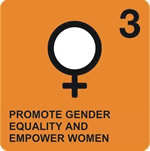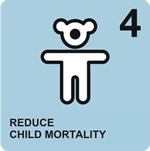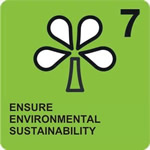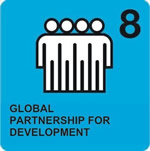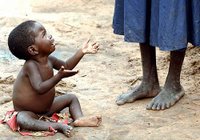 The United Nations just reported that hunger will kill more than 300,000 children in West Africa this year if donor nations fail to stump up enough money to provide international food aid.
The United Nations just reported that hunger will kill more than 300,000 children in West Africa this year if donor nations fail to stump up enough money to provide international food aid.Drought is striking Africa harder and more often, presenting new challenges to those providing emergency international aid and those struggling to find long-term solutions for an impoverished continent.
James Morris, executive director of the World Food Program that feeds 20 million people affected by the drought, says, "I'm not a scientist, but there is a change in the world's weather pattern that disproportionately affects Africa. The rain cycle has been in a steady downward trend."
"I would argue that we are now entering a time of persistent famine" in Africa, concludes Calestous Juma, a development expert at Harvard University.
Disasters have struck elsewhere in the world, from the Asian tsunami to the Pakistani earthquake to flooding in Latin America to today's earthquake in Iran, "but the toughest issues are in Africa, there's no question," Morris said. "We've been stretched to our capacity. Overwhelmed."
As we read new articles like this, one can’t help but reflect on passages like the following from the Gospel of Matthew:
As Jesus was sitting on the Mount of Olives, his disciples came to him privately. “Tell us,” they said, “what will be the sign of your coming and of the end of the age?”
Jesus answered: “…Nation will rise against nation, and kingdom against kingdom. There will be famines and earthquakes in various places. … Because of the increase of wickedness, the love of most will grow cold …
“For then there will be great distress, unequalled from the beginning of the world until now.”




